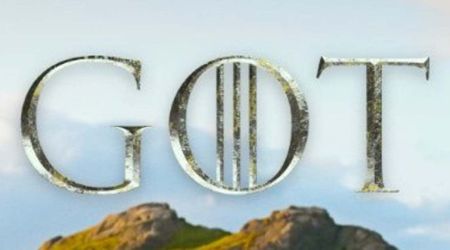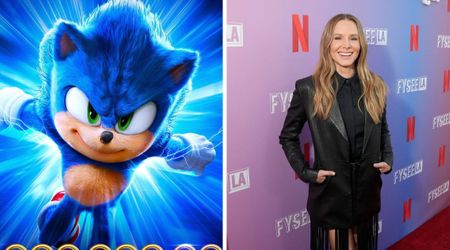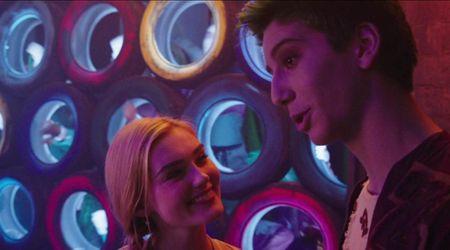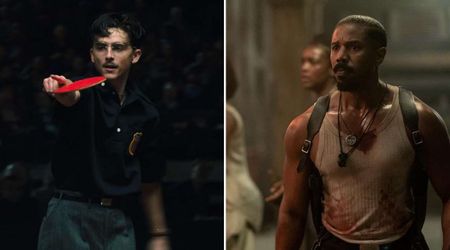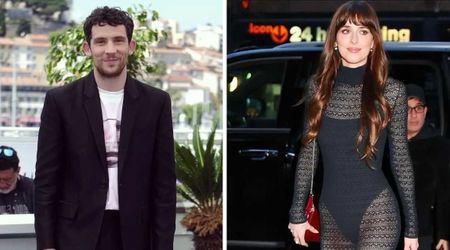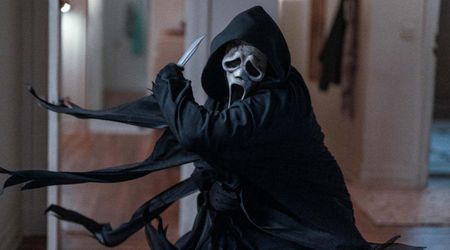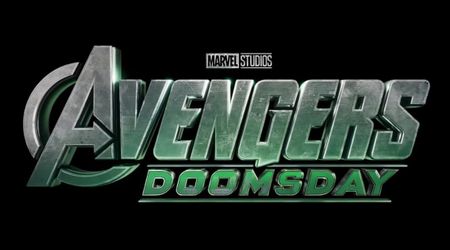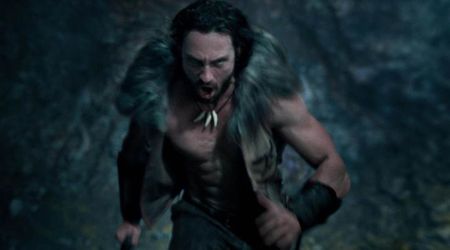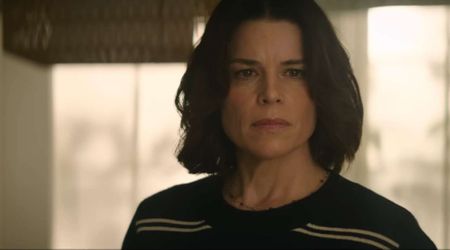All the times superhero movies failed to live up to their comicbook forerunners

When Robert Downey Jr said the words “I am Iron Man,” in 2008 he started something that grew beyond all expectations and took Marvel from the brink of bankruptcy to the top of the industry.
The MCU has become so influential that the movies are actually started to change comic books, with new titles being announced based on the popularity of characters on the silver screen.
It even inspired a new wave of superhero movies from the DC Extended Universe to the latest series of 'X-Men' films. But the genre’s success story isn’t without its low points. Now, with the Marvel Cinematic Universe releasing the much-awaited 'Infinity War' movie, we decided to take a look at some of the times superhero movies failed to fill the shoes of their comic book counterparts.
1) Demon in a Bottle (Iron Man 2)
In the 1979 story-line 'Demon in a Bottle', on which the second Iron Man feature was based, Tony Stark deals with his suit malfunctioning - accidentally causing the death of an ambassador. The story explored the consequences of Stark’s hedonistic lifestyle; especially his alcoholism.
The comics show some truly memorable scenes where Stark drowns his sorrows in drink, highlighting the one thing that made Marvel’s heroes more relatable than their competitors: their inherent humanity. Tony Stark in the comics is not a god or a superhuman, despite all his wealth and brilliance. At the end of the day, he is just another flawed human being dealing with the responsibilities of being a businessman, an inventor and a superhero.
Unfortunately, while the movie may have done well at the box office, it fails to capture this humanity. The script takes a deeply personal and yet relatable problem and turns it into just another puzzle for Stark to fix with his inventing mind.
Where the comics used his alcoholism to explore the limits of the character and show that there are some things that can’t be fixed with a machine, the movie offered nothing more than an insipid plot that failed to add any genuine development to the title character. Even the plotline about Stark resolving his issues with his father seems forced and fails to leave a strong impression on the viewer.
2) Civil War (Captain America: Civil War)
With 'Civil War', the movie writers bit off a little more than they could chew. After all, how do you take an epic crossover event that divided the entirety of Marvel’s earthbound heroes into two camps and fit it into a 2-hour timeframe?
In the movie, we don’t get to see why each hero chose their side. In fact, it is kinda arbitrary the way they were grouped together without any real thought. Except for maybe Scarlet Witch, no one in the movie including Steve Rogers has a truly powerful motivation for going so far as to fight the collective might of every world government. While in the comics the idea of Captain America, the personification of the American dream, going against the American government becomes a powerful political statement, the movie merely has him fighting to protect Bucky from the consequences of a lifetime as an assassin.
To their credit, the Russo brothers did make an effort. The movie does incorporate certain things from the comics including Captain America’s speech about not giving in to the system. But what was an intense piece of political commentary in the comics, came out as just another superhero fight film.
Does it outdo its DC counterpart, 'Batman vs Superman'? Probably. Does it match the greatness of its source material? Absolutely not.
3) Ragnarok (Thor: Ragnarok)
'Thor: Ragnarok' tried to combine two epic comic book story arcs and failed to do justice to either. The movie was acclaimed for its visual effects and music but that’s really about it. 'Ragnarok' in the comic books is a deeply philosophical story that deconstructs the true meaning of godhood. In the comics, Asgard prepares for the apocalyptic event that is destined to end every entity in the Norse pantheon only to have them be recreated again in an unending cycle.
Thor is forced to undergo a series of trials in order to claim his birthright as king of Asgard. At the end of the story, the god of thunder ends the cycle of resurrection that caused the Asgardian gods to fight over and over again for all eternity and ascend to a higher state of being.
The movie did provide an interesting exploration of the nature of a nation with the ending showing that a nation is not merely the land but the people who populate it. But it doesn’t really match the comic book storyline in terms of depth and emotional intensity.
4) Planet Hulk (Thor: Ragnarok)
The Hulk is a character that the movies have repeatedly failed to do justice to and his treatment in 'Ragnarok' is a perfect example of this fact. The 'Ragnarok' movie took ‘Planet Hulk’, an intense story that cast the green goliath in a whole new light, and turned it into a subplot.
‘Planet Hulk’ sees the hero launched into space by Earth’s heroes in an effort to stop him from causing any more destruction. The ship he is travelling in crashes on a strange planet called Sakaar where he is forced to become a gladiator for the ruler of the planet, the Red King. In the ring, Hulk makes new friendships and forms a pact with a number of other gladiators to fight together till death. The newly formed "Warbound" start a revolution against the tyrannical Red King and overthrow him; fulfilling a prophecy that predicted the coming of a hero called the “Sakaar-son” who would free the planet’s oppressed people and unite them as a new nation. Over the course of the story, Bruce Banner and the Hulk work out their differences and take on the persona of “the Green Scar”, the most powerful version of the Hulk.
The Green Scar Hulk combines Banner’s intelligence and the Hulk’s strength to create a being so powerful that he can shatter a planet with just his footsteps. But even at the height of his greatest success, the tragic nature of Banner’s life reasserts itself and turns his happiness to ash. At the end of the three-part storyline, the Hulk sits on the throne of the deposed Red King with his new queen by his side, only for his past to catch up with him when his crashed ship explodes and kills thousands including his wife Caeira.
5) Avengers #54 (Avengers: Age of Ultron)
The MCU earned its popularity by finding innovative new ways to introduce fan-favourite comic book characters. Unfortunately, this plan failed with the eponymous villain for the second 'Avengers' movie which took more from Ultron’s introductory appearance in 'Avengers #54' than the actual 'Age of Ultron' comic book event.
The comics show Ultron as a villain on the same level as Thanos who the Avengers repeatedly fail to eliminate for good. The character is a postmodern Prometheus, an adamantium Frankenstein’s monster with an Oedipal complex. Despite all their efforts, the Avengers cannot stop Ultron as his ultimate goal, the extinction of humanity and the rise of intelligent machines as the new dominant species, is a foregone conclusion. The best humanity can hope for is to delay the coming of the Age of Ultron.
The movie killed Ultron, and not just literally. It took what could have been a boss character for the Avengers to fight post-Thanos and turned him into just another villain-of-the-day who is destroyed with minimal actual effort. Even the sacrifice of Quicksilver fails to make up for the lack of emotional and philosophical connection in the movie. We never get to identify with Ultron or understand his true motivations. Just as with Civil War, the movie tries to fit decades of writing into a single feature film and inevitably falls short of the mark.
6) The Fall of the Mutants (X-Men: Apocalypse)
The X-Men comics were doing social commentary long before publishers started pushing faux-progressive pieces to capture the millennial audience. Curiously though, this is an element that has not always been explored fully in their movie avatars. The comic book version of 'X-Men: Apocalypse’ outclasses its movie adaptation both in terms of style and quality.
The Apocalypse from the comics is a mutant legend, one of the most powerful beings alive with a destructive yet understandable point of view. He sees himself as mutantkind’s messiah. His purpose in life is to lead his mutant brethren into a golden age where they will no longer be hunted or discriminated against. Unlike Magneto or Charles Xavier, however, he isn’t content with just creating this world. This is because Apocalypse sees himself not as a mortal but as a god. And after all, gods demand worship.
Not only did the movie not capture the nuances of the complex character, it absolutely failed to cover the sociopolitical metaphor hidden in the story. The vision of Apocalypse is a world where mutants rule; where to have powers is the norm, and where many of the enemies the X-Men have fought against have been eradicated. Yet despite this, the heroes in the story try to prevent this world from being born because freedom is meaningless if it comes at the cost of millions of lives.
7) The Dark Knight Returns (Batman vs Superman: Dawn of Justice)
When the DCEU announced that a new movie based on the widely acclaimed 1986 graphic novel would be coming out, fans were understandably excited. Not only was both Batman and Superman appearing in the movie but it was set to be based on one of the greatest stories ever told in the graphic medium. Unfortunately, what director Zack Snyder finally dished out was a confused and incoherent set of clips that, if arranged properly, seem a little bit like a movie.
The original work brings an embittered Batman out of retirement at the age of 55 to fight the good fight despite opposition from the Gotham police. It introduced the first female Robin and culminated in an all-out brawl with Superman, who is now working for the government.
'The Dark Knight Returns' is only one among many comic book storylines that involve a fight between the two legendary superheroes but it is important because it explores a Batman who has left his crime-fighting days behind. The Batman from the graphic novel is a man who has given up the fight forced back into action.
Essentially, it showcases a Batman who has died and come back. In place of that complex figure, 'BvS' created a Batman who not only lets himself be manipulated by a cackling madman (Lex Luthor, played by Jesse Eisenberg) but goes so far as to take it upon himself to kill Superman on the basis of pure suspicion. Of all the times the two figures have fought in their shared history, 'Batman vs Superman' was undoubtedly the worst written.

